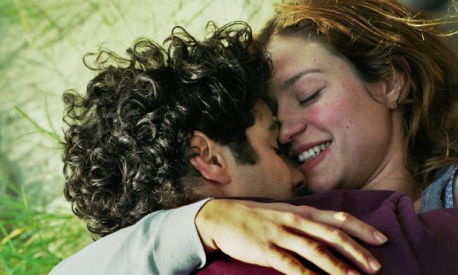(Brett Morgen, 2012)
(Originally posted at Take One)
Marking the 50th anniversary of the formation of The Rolling Stones, Brett Morgen’s illuminating documentary Crossfire Hurricane both commemorates and studies the extraordinary legacy enjoyed by one of the world’s most iconic rock bands. Compiling a wealth of painstakingly researched scraps of rare and often unseen archive materials, ranging from newsreels, personally filmed backstage videos and a host of live performance footage, Morgen – whose previous documentaries include Chicago 10 and The Kid Stays in the Picture– has sculpted a lovingly rendered tribute to such an astonishing milestone of British rock music, taking a standard approach to the genre and peppering it with insight and evocation, even if it fails to be totally comprehensive.
This may not be entirely Morgen’s fault, however, as The Rolling Stones have padded out their remarkable fifty-year tenure with an illustrious and eventful career marked by an exhaustive, long-standing and unsurpassed dedication to the music they’ve so profitably released. Honed and meticulously edited together, Morgen has created a timely and inspiring distillation of the band’s highs and lows which, thanks to the Stones’ help in the production of the documentary, raises a congratulatory glass and a dutiful slap on the back. That isn’t to say the film is one-sided and biased towards depicting the band in a completely positive light; quite the contrary in fact, as the film makes many pit stops in order to explore the low points in their career, which range from the tragic, premature death of original band member Brian Jones, the rising temptations of rock ’n’ roll – especially Keith Richards’ frequent run-ins with the police for drug abuse – and their unjust brandishing as anti-establishment rabble-rousers.
It is perhaps here that Crossfire Hurricane finds its most interesting groove. Charged with inspiring a counter-cultural movement in both England and, subsequently, wherever their infectious success took them, the Stones were lambasted by a certain percentage of the public who saw them as nothing more than catalysts for social and civil unrest, especially with their dizzyingly lively concert performances, and of course the disastrous events at their self-organised free festival on the Altamont Speedway, itself an event scrutinised in the Maysles brother’s 1970 documentary Gimme Shelter. Sparking disorder and casual mayhem in their wake, the band invited a level of mass hysteria perhaps only shared by The Beatles, whose rise to success began at a similar time.
Yet, with their shaggy hair and unobvious looks, The Stones were carelessly allotted into the unwarranted position as the bad guys in conjunction with The Beatles’ white knights, whose sunny music and sleek attire contrasted with Mick Jagger, Keith Richard and Charlie Watts et al’s non-conformity, unkempt haircuts and garishly diverse fashion sense. An excellent juxtaposition of the band’s rebellious attitude with British culture comes in the form of an expertly pieced together montage of their activities and the fans they so enthralled, cut together with a number of advertisements that outline the supposed ideals of domesticity and the nuclear family.
Never letting their ostracism from certain distinguished figures get in the way of consistently producing record after record, The Rolling Stones only intermittently became prey to the lure of their profession, letting drugs, sex and booze cloud their better judgements. The best thing about Morgen’s film – and surely a reason why they appear to have commissioned it so wholeheartedly – is that it really does paint them as intelligent and very well educated men who know exactly what they want and how to amass their talents to get it. The spine of the film is a series of interviews with the current band members set in the present who Morgen was not, for whatever reason, allowed to film, only to record. This produces a series of unadulterated sequences where the blackness of the screen gives the audience a break from the gloriously flashy havoc and allows us to fully comprehend and listen to the pains, the joy and the utter fulfilment expressed in their voices.
Although Morgen’s film serves only to commemorate The Rolling Stones and their dextrous career, rarely conveying anything particularly new about the band as it inescapably sketches over large portions of the band’s foundations, Crossfire Hurricane is a reflection and celebration of their justified success. Just like the lyrics the film borrows its title from, they were born into a hurricane of incongruity and fervent popularity. Yet as the finale (and a recently announced comeback tour) suggests, this band fully deserves whatever merit one throws at them, as does Morgen, whose film is a gas.








